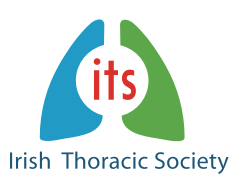A PHASE 3 TRIAL OF PIRFENIDONE IN PATIENTS WITH IDIOPATHIC PULMONARY FIBROSIS (King et al, N Engl J Med. 2014: 370(22):2083-92)
Link to original journal article
This was an RCT of 555 patients with IPF randomised in a 1:1 fashion to receive pirfenidone 2403mg/day or matched placebo. There was a 47.9% relative risk reduction in the proportion of subjects dying or having a >10% decline in FVC (-280ml slope for the control arm and 164ml for the active arm). Combining this trial with the CAPACITY trial showed a significant survival advantage for pirfenidone
Final statement: Pirfenidone shows a risk reduction in a >10% decline in FVC and a survival benefit.
EFFICACY AND SAFETY OF NINTEDANIB IN IDIOPATHIC PULMONARY FIBROSIS (Richeldi et al, N Engl J Med. 2014; 370(22):2701-82)
Link to original journal article
This was a randomised placebo controlled trial where 1066 patients were randomised in a 3:2 ratio to either nintedanib 150mg BD or placebo. The annual rate of change in FVC was -114.7ml in the active arm and -239.9ml in the control. There was also a significant benefit with nintedanib in time to first acute exacerbation. There was a trend to a survival benefit and the most significant side effect was diarrhoea.
Final statement: Nintedanib led to a slower decline in FVC, and a longer time to first acute exacerbation.
LUNG MICROBIOME AND DISEASE PROGRESSION IN IDIOPATHIC PULMONARY FIBRORIS: AN ANALYSIS OF THE COMET STUDY (Han et al. Lancet Respir Med. 2014: 2(7):548-56)
Link to original journal article
In this study the lung microbiome in BAL samples from 55 patients with IPF was studied. Disease progression associated significantly with a higher burden of Streptococcus OUT 1345 and Staphylococcus OUT 1348.
Final statement: IPF is linked to changes in the lung microbiome.
RHEUMATOID ARTHRITIS-RELATED INTERSTITIAL LUNG DISEASE: ASSOCIATIONS, PROGNOSTIC FACTORS AND PHYSIOLOGICAL AND RADIOLOGICAL CHARACTERISTICS: A LARGE MULTICENTRE UK STUDY (Kelly et al Rheumatology (Oxford). 2014: 53(9):1676-82)
Link to original journal article
This was a retrospective multi-centre study looking at patients with Rheumatoid arthritis ILD. Of the 230 patients identified, the median age at diagnosis was 64 with a higher incidence in women. Anti-CCP antibodies were the strongest predictor for RA-ILD. Other factors included male sex, older age of RA onset, smoking and positive rheumatoid factor. Most patients had a UIP pattern which predicted a worse outcome.
Final statement: Factors associated with RA-ILD included Anti-CCP antibodies, high RH factor, male sex, older age of RA onset and smoking history.
